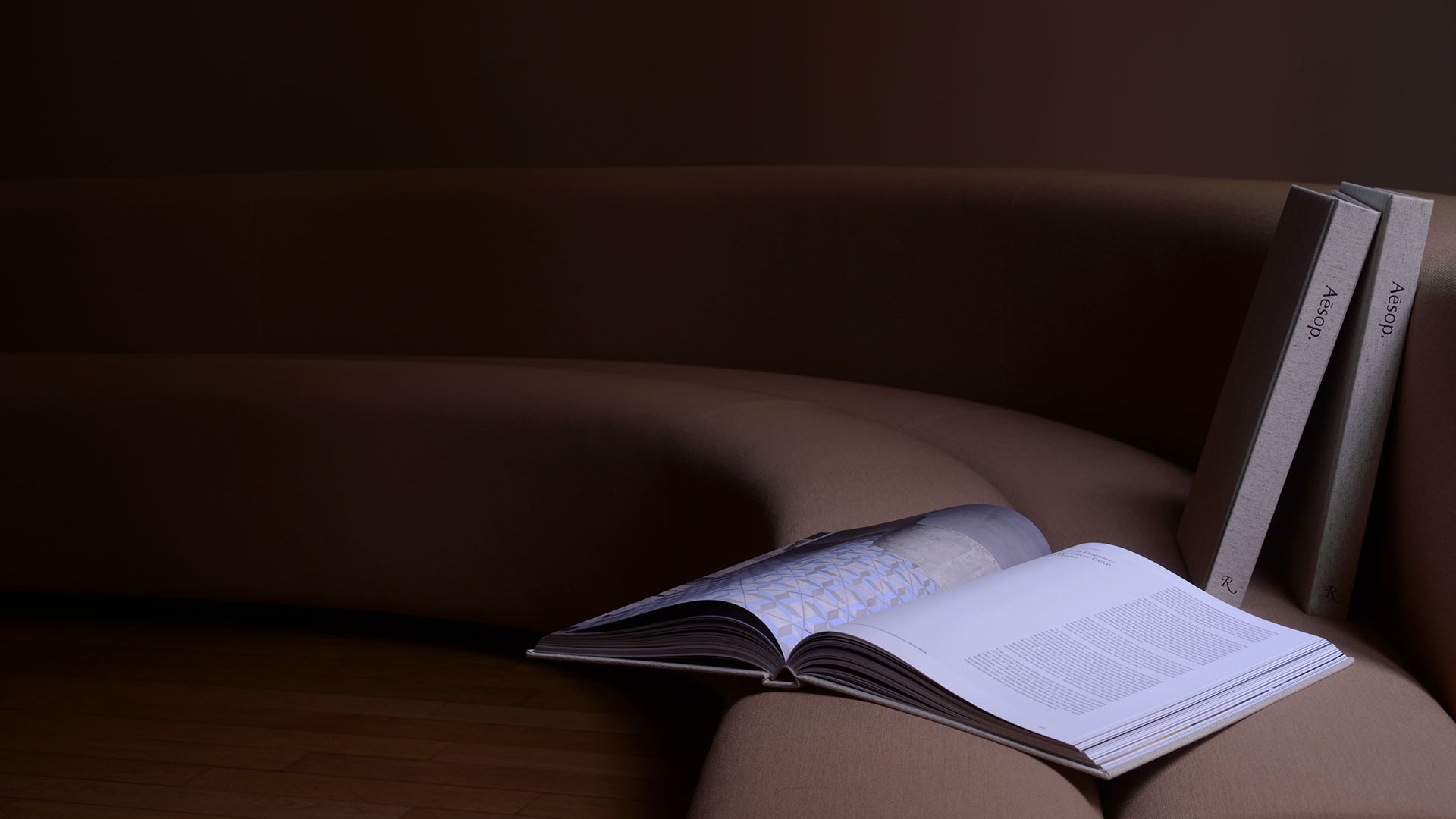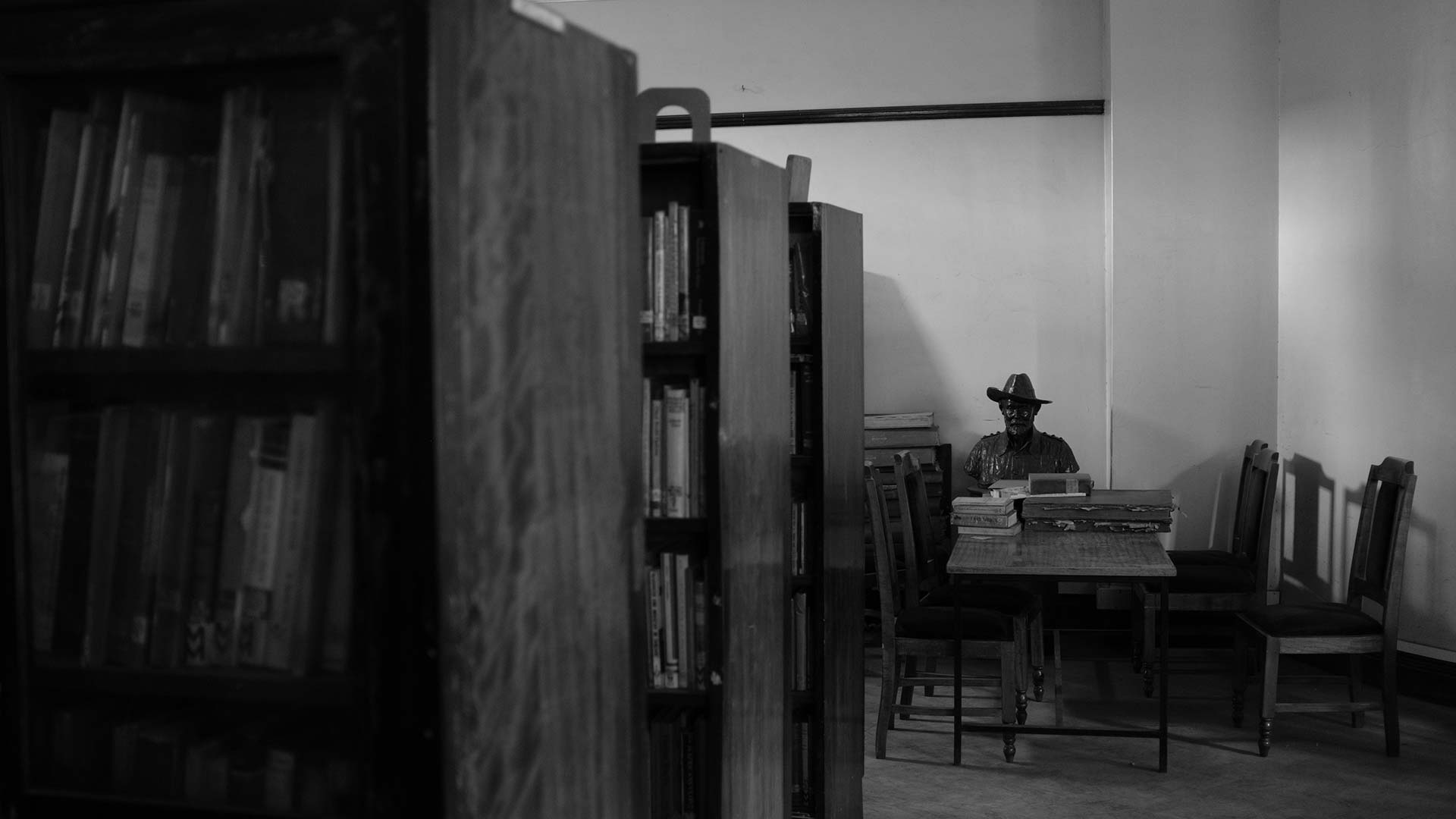From the outside, the London Library looks like nothing more than a slim town house on a corner of an elegant square in St. James’s. A first look inside—at its lending hall (which is all a nonmember can ever see) or up the red-carpeted stairs to its reading room with leather armchairs and views over statues and leaves—seems to confirm its restricted size. And then the bibliomaniac pushes open a door to the library’s stacks. The stacks of the London Library, containing more than a million books, suggest a representation in architecture of the way language can invent new worlds and impossible beings just through the mechanics of grammar. The shelves, like the floors, are made out of ribbed iron, and seem endless. This is partly an effect of proportion: while the reading room, sure, is often quietly busy, the stacks are peopled only by solitary hunched figures—the way Romantic landscape painters placed a single human in the vastness of a mountain range or torrent to produce the sublime effect. And that sublime frisson is intensified by the darkness the stacks inhabit. The lights in each aisle have to be turned on individually, with an old-fashioned pull-string— which gives each section of the world’s knowledge the allure of a secret alleyway. But this endlessness is also due to the eccentric way this knowledge is organized. How does writing replicate the world? How should the mind classify its investigations? This is the problem, I guess, posed by the existence of any library, and the London Library seems to want to maintain a position in this argument which is at once sturdy and vertiginous. The library was founded in 1841, and has counted Thomas Carlyle, Tennyson, and T. S. Eliot among its presidents, as well as Charles Dickens and Virginia Woolf among its members. It’s the largest lending library in London, and therefore its members include many writers, academics, and general autodidacts—as well as a happy smattering of lazier inhabitants, tempted more by the soporific calm (all conversation is discouraged) of its reading room, which lends the library the occasional air of a club left over from the heyday of colonial expansion. And there’s a similar nineteenth-century confidence in the way within the capacious rubric S.—for Science & Miscellaneous—individual labels are famously given to each aspect of human research: Aviation, Duels, Vegetarianism, Anatomy ... but the sheer wanton craziness of such labels seems to undermine this apparent confidence. The overall effect is something more like a postmodern collage, a series of small shocks, like the Las Vegas Strip. Of all these sections, my favorite is S. Space Travel &c. I have been a space geek since I was a boy. One of the first books I gathered from this shelf was Norman Mailer’s manic account of the moon landings—Of a Fire on the Moon—with its antic philosophy, Wernher von Braun cameo, and descriptions of Florida night skies. Von Braun’s self-fashioning from Nazi scientist to Cold War utopian occurs in another extraordinary book that’s on the shelves—his History of Rocketry & Space Travel. But then, that kind of mash-up of supreme evil and exorbitant dreaming is precisely why space travel is so alluring. Which is why maybe my favorite book on the shelf is Across the Space Frontier, from 1952, the record of a symposium imagining how any rocket would reach outer space, how a space station would be constructed, how the universe could be explored.... In it, there are contributions by Von Braun and also by Oscar Schachter, the international lawyer, along with a variety of astrophysicists, and a preface by the Astronomer Royal, Sir Harold Spencer Jones (F.R.S., F.R.A.S.): “Risks must always be faced when venturing into the unknown.” Such delicious mingling of the sober and the insane! And standing there, under the fluorescent striplights of the stacks, I wonder whether the reason I love this dark corner of the library so much is that in some way the desire to travel in space represents some kind of allegory for reading, or for thinking. I cannot help seeing space travel as a noble endeavor, however compromised and colonial in its practicalities. Too much of the literature or history we produce is provincially human in its focus. This small shelf represents a quiet rebuke to the usual processes. It represents an absolute conceptual black hole—sucking in all the other billion words stacked quietly on shelves around it.
Please sign up for Aesop Hong Kong's WhatsApp to ensure your data is secured for system upgrade.Learn more
Cart
Size
Quantity
We are pleased to offer shipping to Hong Kong SAR, China and Macau SAR, China.
All prices are listed in HKD.
Included Taxes


